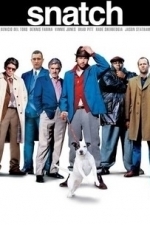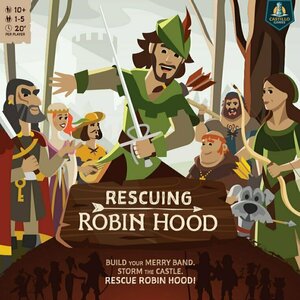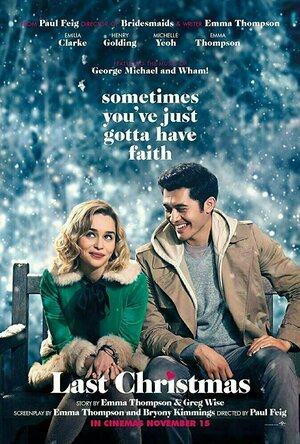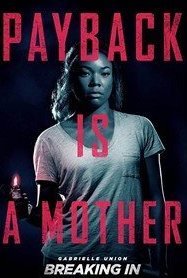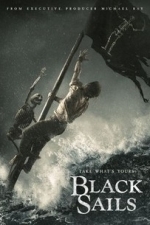
Over Edit & Add Text to Photos
Photo & Video and Entertainment
App
With Over, choose from millions of images, graphics and fonts to overlay, add and edit text and...

myWOD — #1 WOD Log for XF Style Workouts
Health & Fitness and Lifestyle
App
myWOD HQ would like to say THANKS TO THE COACHES, TRAINERS, ATHLETES, AND CROSSFIT ENTHUSIASTS...
Sarah (7800 KP) rated Snatch (2001) in Movies
Dec 20, 2020
Snatch (2000) is Guy Ritchie’s second film following on from his hugely successful debut, Lock, Stock and Two Smoking Barrels (1998). Critically Snatch wasn’t quite as well received as it’s predecessor but the general movie going public found it a lot more enjoyable, and personally I agree with the public. I’ve always loved Snatch and prefer it over Lock, Stock.
Snatch tells a rather convoluted and twisting tale about gangsters, diamonds and unlicensed boxing. In a number of intersecting storylines, we see unlicensed boxing promoters Turkish (Jason Statham) and Tommy (Stephen Graham) get pulled into the world of match fixing with violent bookmaker Brick Top (Alan Ford), recruiting Brad Pitt’s gypsy Mickey along the way. And then you have inept criminals Sol (Lennie James), Vinny (Robbie Gee) and Tyrone (Ade) as they attempt to steal a valuable diamond from Franky Four Fingers (Benicio Del Toro) on behalf of Russian Boris the Blade (Rade Serbedzija), also involving Vinnie Jones’s Bullet-Tooth Tony, Mike Reid’s Doug the Head and Dennis Farina’s Cousin Avi along the way. As you can see, the plot isn’t exactly straight forward but despite it’s complexity, it’s a fun and entertaining watch to see all of these separate storylines come together.
What makes this complex and quite frankly bonkers story so good to watch is the script and absolutely superb dialogue. Considering this isn’t what you’d class as a typical comedy fun, it is downright hilarious. No matter how many times I’ve seen this film, it still makes me laugh every time with it’s smart, witty and funny dialogue. From Turkish’s narration to Cousin Avi’s scathing remarks about London and pretty much every interaction between Sol, Vinny and Tyrone, Snatch is extremely amusing. Admittedly there are some lines and exchanges that feel a little too forced and staged, and I think this may be due to some questionable acting and the sometimes unnatural sounding London accents.
Guy Ritchie has undoubtedly put together a stylish and slick film, and Snatch definitely encompasses the dark and gritty feel of London. Maybe a little too much as it can feel a bit gloomy at times. It has a great soundtrack and this really works with Ritchie’s directing style for the most part. There are some questionable camera angles and not all of these work – the most grating for me was in the opening scenes with Franky Four Finger’s heist where the camera jumped around far too much.
Despite this, his style works well in general and is aided by the fantastic cast that has been assembled. I’ve never been a fan of Jason Statham, but this is by far his best work, although the star of Snatch is certainly Brad Pitt, who is virtually unrecognisable as gypsy Mickey, both in looks and with his purposely indecipherable Irish accent. Snatch came out the year after Fight Club at a time that would likely be classed as the peak of Pitt’s career, so to see him play a character like Mickey was surprising to say the least. But the entire cast shine with the material they’ve got to work with.
Snatch isn’t a film for everyone and definitely not for the easily offended. For me, I could watch this repeatedly and still laugh every time, and it’s absolutely deserving of a place on this list.

InstaLogo Logo Creator - Graphic & design maker
Business
App
Create your next logo on your iPhone, iPad or iPod Touch with InstaLogo. And with a fresh new design...

InstaLogo Logo Creator - Graphic design maker
Business and Productivity
App
Celebrating our Birthday --> LIMITED TIME Sale! (normally $9.99, NOW only $4.99) ---> DOWNLOAD...
Purple Phoenix Games (2266 KP) rated Rescuing Robin Hood in Tabletop Games
Nov 10, 2020
Rescuing Robin Hood is a cooperative card drafting and deck building game with multiple value usage on each card and, at least in my very first play, the humbling experience of having over 20 guards protecting the Sheriff of Nottingham. Players will win once Robin Hood is rescued, but may achieve an ultimate victory by defeating the Sheriff and his guard detail.
DISCLAIMER: We were provided a prototype copy of this game for the purposes of this review. These are preview copy components, and I do not know for sure if the final components will be any different from these shown. Also, it is not my intention to detail every rule in the game, as there are just too many. You are invited to download the rulebook, back the game through the Kickstarter campaign launching November 10, 2020, or through any retailers stocking it after fulfillment. -T
To setup, follow the setup suggestion in the rulebook. The game should roughly look how it is below in the photo. Roughly. The components include cards for Nottingham Castle, the Sheriff, his guards, Robin Hood, his band of Merry Men, other recruitable villagers, and a Tracker Card. Along with all the cards, inside the box are tracker cubes and ability chips. Once the game is setup, determine the starting player and the game may begin!
A game of Rescuing Robin Hood lasts five rounds (or “days” to rescue the hero from being executed). Each round has players dealing four cards from their draw decks and using these four villagers in conjunction with their chosen Merry Men character card to create values on the Tracker Card for Wit, Stealth, Brawn, and Jolliness. Some villagers or characters will also provide the player with ability chips to be used during the turn. These include Prayer (which can move guards from one group to another, or eliminate a guard entirely – the power of prayer is REAL), Cookery (which can be used to increase the values of Wit, Stealth, or Brawn by +2 for each chip), and Scouting (which allows a player to reveal a face-down guard card in any group).
Once the active player has adjusted all their values they wish, they may now begin attacking guards. Per the setup card for each round a group of guards are holding villagers captive and they must be defeated in order to free the villagers to be recruited to players’ decks. In order to defeat a guard or entire groups of guards, players will be attacking twice using their Wit, Stealth, and/or Brawn values.
To attack with Wit, the active player will determine which group of guards they will attack and target the face-up guard at the end of the group. If defeated, the player will reduce their total Wit by the value of Wit they expended to defeat the first guard. Should they wish to continue attacking guards with Wit, they must state this before flipping the next guard face-up. This adds the push-your-luck element to the game. Should the player wish to stop, the guards are defeated. Should the player bust, the entire collection of guards previously outwitted are added back to the group face-up to be defeated by another player or by the same player using a different attack method.
If the active player wishes to use Stealth to attack guards, they must choose a group of guards and pick them off one by one. Using their total Stealth value and decreasing it with each successful attack, the player will choose one or more (face-up or face-down) guards to attack. Again, should they succeed the guards will be defeated and removed from play. Should the player bust by attempting to pick off too many guards, then all guards are added back to the group face-up.
Using Brawn to attack guards requires the active player to choose a group of guards and attack the ENTIRE group using their Brawn value. Should the player succeed in defeating all guards in the group (no matter the size of the group) then all guards are removed from play. If the player fails, as always, the guards are returned to the group to taunt the next player.
Active players will be able to attack guards twice on a turn but must use two different attack methods. Should the player end their turn with remaining Brawn or Jolliness values, those values will be passed along to the next player in turn order to be used. Additionally, should the next player end their turn with Brawn or Jolliness, they will be passed to the next player and so on.
At the end of each round villagers that were freed of guards during the round will be drafted to players’ decks. At the end of round 2 and 4 players’ decks will be thinned by choosing which villagers stay and which will aid the players in the final round. The final round of Rescuing Robin Hood pits the players against the walls of Nottingham Castle, a Courtyard full of guards, and even Sheriff Nottingham and his personal guards. Again, should the players defeat the Castle walls and Courtyard, they free Robin Hood and win the game. If the players are feeling particularly confident they may also challenge the Sheriff for ultimate victory.
Components. Again, this is a prototype copy of the game using prototype components. That said, the components we received are truly excellent. Firstly, the art style throughout the game is crisp and colorful and a lot of fun. Some of the names of the villagers are downright silly and punny and I absolutely love that. The cards are all wonderful, and the cubes are normal game cubes (not Nintendo-related), and hopefully they will be upgraded via a successful Kickstarter campaign. All in all the components are great and the art is quite enjoyable.
So do I like Rescuing Robin Hood? Oh yes, quite a bit! This game exercises my brain so much without having to labor for minutes on end creating strategies and alternate strategies. I enjoy being able to just barrel into a group of guards and take out the entire swath of them using my extreme Brawniness. Need to pump up before a fight? Well obviously I’ll use up my Jolliness to boost my confidence or narrow my concentration. I purposely omitted several rules so as not to bog down my review any further, but there are so many interesting little flecks of mechanics working together to create a cohesive gaming experience and it is simply delicious.
While Rescuing Robin Hood is not incredibly heavy, there are tons of choices to be made and risks to be taken to achieve ultimate victory. I enjoy being able to tailor my deck with powerful villagers, or specialize in two attack values to unload on guards. Having players that use interesting mixes of Merry Men characters also increases the enjoyment as this game is absolutely cooperative and players may assist each other in many ways. Need some extra Wit for your turn coming up? Here, let me pass along my extra Jolliness to you to use. Want some Cookery too? Go ahead, I’ve got plenty to share. Oh, such great feelings at the table being able to share resources like this.
So I urge you, dear reader, to check out the Kickstarter campaign for Rescuing Robin Hood. If you enjoy lighter (but not tooooo light) cooperative, card drafting, deck building games with a great theme, you need to pick up a copy of Rescuing Robin Hood. I didn’t see Blinkin or Ahchoo in the game, but that’s not to say Castillo Games doesn’t have these hiding in stretch goals (I really don’t know if they are in the plans, but they SHOULD be).
Purple Phoenix Games (2266 KP) rated Stellar Leap in Tabletop Games
Apr 23, 2020
DISCLAIMER: We were provided a copy of this game for the purposes of this review. This is a retail copy of the game, so what you see in these photos is exactly what would be received in your box. We do not intend to cover every single rule included in the rulebook, but will describe the overall game flow and major rule set so that our readers may get a sense of how the game plays. For more in depth rules, you may purchase a copy online or from your FLGS. -T
Stellar Leap is, at its core, a worker placement game with elements of dice rolling, variable powers, and a modular ‘board’ sprinkled in. To setup, each player receives an individual player board and components, while the Galaxy is set up for use by all players. Players then add their home planet, as well as 1 population marker, to the Galaxy, and the game is ready to begin! Stellar Leap is played over a series of rounds in which players take turns performing any or all actions available to them.
To begin a turn, players first recover any Population markers that may have been exhausted on their last turn (more on that in a bit). Next, the player rolls the two dice, manipulating them with Special Dice Powers if desired, and resources are collected. The Galaxy is set up in columns, each column numbered 1-6, to which these dice rolls will correspond. If you have a Population marker on a planet in one of the columns that corresponds to your die roll (you have a Population in column 4 and you rolled a 4), you collect the resources provided by that planet. It is important to note that any player can receive resources from a die roll, even if it is not their turn!
The next phase of play involves three elements: Movement, High Command Actions, and Division Actions. There is no limit to the amount of Movement you can take on your turn, as long as you have resources available to perform that action. You may take two High Command Actions: Populate (add a new Population marker to a planet), Tax (collect any two resources), Discover (add planets/asteroids to the Galaxy), or Attack (fight an opponent located on the same planet as yourself). The same High Command Action could be performed twice on your turn, but you can only perform two per turn. The Division Actions can each be taken once per turn. Those actions are: Intelligence (complete a Mission), Mining (mine an asteroid for resources), or Labor (exhaust one of your populations on a planet to receive additional resources). Movement, High Command Actions, and Division Actions can be taken in any order on your turn – turns are not ‘set’ in a specific order and actions can be taken at your discretion. You also are not required to take every available action on your turn if you do not want to – your turns could be as long or as brief as you want them to be, depending on which actions you want to take.
At certain points throughout play, Events will be triggered. When an Event is triggered, draw the top Event card and resolve its effect. Some are resolved immediately, and some remain in play for the rest of the game. The game ends once six Events have been triggered. Players then tally up their Prestige points (earned by completing Missions, discovering planets, winning combats, and fulfilling their secret objectives), and the player with the highest Prestige is declared the winner!
So as you can see, there is quite a bit going on in Stellar Leap. Admittedly, it seemed pretty daunting to me as I first read through the rules. But in all actuality, the game flows pretty efficiently and calmly. How? Player Reference cards! I absolutely looooove a game that includes good references cards for player turns because it makes it so much easier to check instead of digging through the entire rulebook for an answer. The Player Reference cards included in this game are well-written, clear, and concise, and that truly helps the game flow smoothly even though there are many elements to every turn. Another thing that I love about Stellar Leap is that you have so many strategic options. Everyone has their own secret objectives for end-game scoring to complete, but you also have to decide which Missions you’d like to accomplish to earn points as well. And do you want to risk many combats, or would you rather live harmoniously with your opponents? When adding planets/asteroids to the Galaxy, you also have to strategize where you should put them – do you want them close to you for easy access? Or do you want to keep them as far away from opponents as necessary? The modular board makes this a different game every time you play, so you can’t just pick a blanket strategy for every play.
The only thing that gives me pause with this game are the rules regarding Movement. You pay certain resources to move, but it depends on the ‘threat level’ of the destination as well as its location in your Solar System or a neighboring Solar System. It just was a little tricky to keep track of how many of each resource I had to pay to move, when moving more than just one planet away. That aspect takes a little bit more concentration, but other than that, the game gave me no issues.
Speaking of no issues, let’s touch on components. The player boards are dual-layered and they are awesome. The text is clear, the organization is logical, and they are just of a great quality. The cards are nice and sturdy, the ‘meeples’ are cute and chunky, and the cardboard chits are good too. The space theme is definitely translated well in this game, and that adds to the immersion.
Overall, I would say Stellar Leap is stellar. (Ha, see what I did there?) The gameplay is engaging and the strategy is adaptable. Some of the rules seem a little tedious in some aspects, but for the most part, they are logical and easy to remember. Weird Giraffe Games is a publisher that has made a blip on our radar, and we are excited to see what other games they will put out in the future – we’ve been impressed so far! Purple Phoenix Games gives Stellar Leap an other-worldly 9 / 12.
Bob Mann (459 KP) rated Last Christmas (2019) in Movies
Nov 25, 2019
This review will be spoiler free.
The plot: Kate (Emilia Clarke) is an immigrant from the former-Yugoslavia now living in London. She has a dead-end job working for "Santa" (Michelle Yeoh) in a Christmas shop in Covent Garden. She is perennially lubricated both with drink and other bodily fluids thanks to her hedonistic lifestyle. And she really likes George Michael.
But life just seems vacuous and to have no purpose for her anymore. Her composure is not helped by her mother (Emma Thompson) constantly fussing about her health, since Kate has only recently recovered from a serious illness.
Dropping into her life then comes Tom (Henry Golding). Smartly dressed and calmly reassuring, Tom seems to have the potential to start turning Kate's life around. But is she prepared to listen?
There are startling similarities here with Phoebe Waller-Bridge's triumphant tribute to hedonistic 30-something sex-addicted females everywhere.... "Fleabag". Kate is similarly louche, hopping from bed to bed in a heartbeat. She has a dysfunctional family and - most strikingly - she has a particularly difficult relationship with her high-achieving sister. This is not helped by a remarkable similarity between the actress playing Marta (Lydia Leonard ) and Fleabag's Clare (Sian Clifford). But whereas Fleabag is both brilliantly written, heart-rending and hilarious, this simply is not.
There were a total of two laughs in the movie for me. Period. Both were lines delivered by Emma Thompson, and if you've seen the film you probably know the ones. Now, I'm aware that Thompson co-wrote the script and she is, of course, a national acting treasure. But here the script is clunky and all of the "comic" scenes are so laboured and forced that they land like leaden weights.
And some of it makes no sense whatsoever. There is some strange Danish sauerkraut salesman (Peter Mygind) with a crush on "Santa". He suddenly appears in the shop acting like some escaped mental patient. When he first appears, acting bizarrely, you think, "oh, there must be some fascinating backstory between these two - a murky past they are trying to rekindle". But no! This is the first time they have EVER met? It's completely bonkers!
Much was made of this being Michelle Yeoh's "first comedy". Sorry, but if she proves anything here it is that she is not a comic actress.
Emilia Clarke is still looking to land in a decent mainstream role outside "Game of Thrones", after a failed Terminator sequel, a half-decent weepie ("Me Before You") and the commercial failure that was "Solo". Here she certainly looks curvaciously cute as the Christmas elf. But unfortunately cute can't save her from the car-crash of a script.
Similarly Henry Golding is well-dressed eye-candy for the ladies, almost doing a re-tread of his cool and laid-back character from the excellent "Crazy Rich Asians". Without the same need to be "zany", he fairs slightly better from the script. But again, this feels like one to shuffle into a quiet corner of his CV.
What can I say that's even remotely good about this? Three things:
1) London. It looks glorious, decked out in lights like some chocolate-box-cover cum tourist-board publicity shot. London is one of the most photogenic cities on the planet, and I could relate to Tom's mantra to "look up" and see all of the architectural quirks and foibles that exist around every corner in that wonderful city;
2) The payoff. Exactly when you get the payoff will depend on how much you know going in (if you've managed to avoid the trailer... continue to avoid it!) and how attentive you are. There's an "aha!" moment. And it's nicely played out.
3) There's a topical xenophobic Brexit angle, that's a little clumsy in the exposition but - in my view - is good for the telling.
This is a movie desperately trying to blend "Love Actually" with another Christmas classic (no... not "Die Hard"... but to say more would introduce spoilers!) But in my view it misses badly.
The director is Paul Feig, famous for "Bridesmaids" and "Spy" and infamous for the female "Ghostbusters" reboot.
There are clearly lovers of this film. At the time of writing it has made an impressive $51M on its $25M budget. But I went with another three cinema-goers from my family, all of differing ages and sentiments: and we all universally agreed on the rating for this one.
(For the graphical review, please check out One Mann's Movies here - https://bob-the-movie-man.com/2019/11/25/one-manns-movies-film-review-last-christmas-2019/ . Thanks).
Bob Mann (459 KP) rated Breaking In (2018) (2018) in Movies
Sep 29, 2021
But no. It turns out that this is a pretty below-average B-movie after all,
The plot is pretty derivative of the “family in dire peril” variety made famous by the “Taken” series. Not being able to persuade Liam Neeson to wear a dress in this “Times Up” era, the Neeson-actioner writer Ryan Engle (“The Commuter“, “Non-Stop“) switches the action to focus on stressed mother Shaun Russell (Gabrielle Union).
Shaun has come to deepest Wisconsin with her two kids, Jasmine (Ajiona Alexus) and Glover (Seth Carr) to arrange the sale of her deceased father’s luxury home: a house absolutely brimming to the elegant rafters with security features. But unknown to them, there are already intruders in the house searching for something of value, and with Shaun locked outside the secure fortress home she will stop at nothing to break in and bring her children safely home.
The sad thing about this one is that the fairly unknown cast actually do a pretty good job. The chief villain Eddie, played by Billy Burke, channels an effectively ‘evil-quiet-Gary-Oldman” turn to good effect. His accomplices, the more sensitive Sam (Levi Meaden), luckless Peter (Mark Furze) and (particularly) the psychopathic Duncan (Richard Cabral) (can a psychopath really be called Duncan?) are broad caricatures, but never too broad to be totally awful.
Gabrielle Union kicks-ass effectively with her particular set of skills (see below), but particularly good is 22-year old Ajiona Alexus who has a great screen presence and deserves to be in much better films than this.
Where the film stumbles and goes crashing through its carbonite shutters is in the story and the screenplay’s dialogue.
The former is just bat-shit crazy, with so many ridiculous plot-holes and “yeah-but” moments that you lose count. For example, at one point the daughter is looking for her mobile phone WHICH IS IN THE ROOM and which would wrap the plot up in 10 minutes flat…. but then something else happens and they stop looking for it, never to be thought of again!
And what of those ‘particular set of skills’ that Shaun has? Oh, I forgot to say… she has none!! Or at least you assume not, since Shaun seems to have no back-story whatsoever, other than the fact that her daddy is very very rich and being investigated by the D/A. For what? Embezzlement? Tax evasion? Smartie-smuggling? Gun running? Perhaps he was a mafia overlord and Shaun was brought up with martial arts, gun and knife training to spy-school level? Perhaps none of the above, and she was just an obsessive watcher of Engle-scripted flicks? We will never know.
In addition, Shaun gets the proverbial crap kicked out of her on so many occasions, but there is no trip to casualty required. (Yes, I know Neeson and most other action heroes have the same implausible in-vulnerabilities, but it just seems so much less realistic when she is a not-particularly sporty or athletic woman).
And that dialogue… it’s just plain laughable in places. If Eddie doesn’t do his “Mamma hen will come back to save her chicks” speech once, he does it five times….
“Hey, James”… (James McTeigue, director, “V for Vendetta”)… says Burke, “Haven’t I said this line four times already”. “Sure”, says McTeigue, “I’m not sure where exactly I want to put it in the final cut yet, but only one of them will stay in. Don’t worry… I won’t make you look stupid to the cinema-going audience!!”
Every last thriller cliché is mined as the story grinds to an unmemorable and very flat conclusion.
Before wrapping up, I’d point out Another crime being committed in the music department. Australian composer Johnny Klimek’s action thriller score is actually quiet good, full of nice electronic riffs. But he really doesn’t know when to shut up. I remember an interview by John Williams on scoring the score to Hitchcock’s “Family Plot” where he recounted that Hitchcock taught him the value of a sudden absence of music at key moments. This film is too recent to learn the many lessons of “A Quiet Place“: but there are so many moments in this film where silence should have been golden. At one point the (what should be) heart-stopping sound effect of a creaking beam can barely be heard over Klimek’s pounding electronics.
So in summary, although it’s the award of ‘good acting attempt’ badges to sew onto the cast’s scout uniforms, my message to you dear reader re this one is “Get Out” of the cinema and enjoy the nice summer evenings instead!
Connor Sheffield (293 KP) rated Black Sails - Season 2 in TV
Jun 3, 2017
These points only become more evident in the second season. My favourite character has to be the man who has a larger role in the book (Treasure Island), and that man is John Silver. Luke Arnold is charming as John Silver, and the character himself is very cunning which makes for great entertainment as he constantly finds new ways for Flint's Crew, and other characters in Nassau, to NEED him alive so that he can survive any and all scenario's. Whether it's his way with words or his cunning ideas that he knows should work (and often do) that makes his character so impressive and brilliant.
The drama has always been gripping in this show, and the action is always leaving me on the edge of my seat because the twists and turns in this show more often than not, catch you off guard when written suddenly. Some of the twists are more obvious than others, they have a build up that make you sit there saying/thinking "They've done this..." or "This is going to happen..." Etc. But it doesn't make the show any less entertaining.
The conflict between Vane and Flint is always entertaining. Whilst Flint is the most feared among the pirates, Vane is certainly not far behind, and his stature towers above Flint's making him mean looking and not someone you'd want to mess with. Flint has the brains, Vane has the brawn and together they are a brilliant rivalry, even when they have to come together for a single purpose. They respect each other, and it shows, but they are both too proud to tell one another that they would be better working with one another rather than against.
The cast are all perfect to their roles, and the characters are all brilliantly written to for their purpose in the show.
